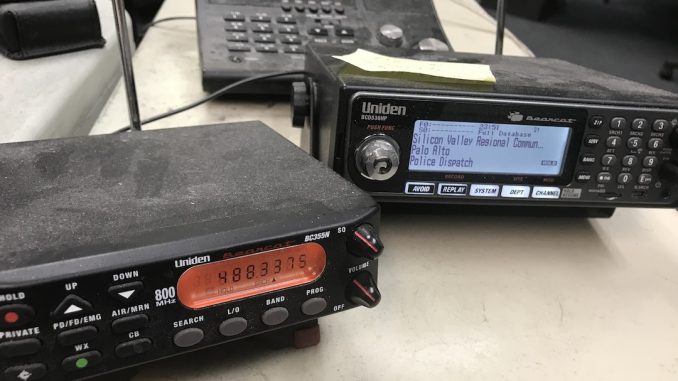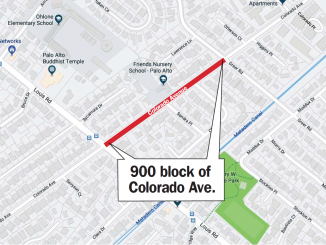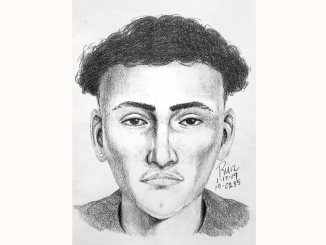
This story was printed in Saturday’s Daily Post. To get all of the local news first, pick up the Post in the mornings at 1,000 mid-Peninsula locations.
BY KYLE MARTIN
Daily Post Staff Writer
Palo Alto Police Chief Robert Jonsen has asked the state to allow the city to reverse its controversial decision to encrypt police radio transmissions to “allow for greater transparency with the public” in a letter obtained by the Post yesterday.
Palo Alto City Council on Monday (April 5) will discuss Jonsen’s decision to encrypt police radio transmissions, prevent the public and news media from hearing when police are dispatched to an incident.
Jonsen asked Joe Dominic, chief of California Justice Information Services, for the rest of the year to figure out a way to keep the radio transmissions available to the public.
“The city of Palo Alto is requesting guidance on if we can revert our primary law enforcement radio channel back to a non-encrypted channel, while alternative options are explored, to allow for greater transparency with the public,” Jonsen said in his letter to Dominic. “This will result in PII information being broadcast on a non-encrypted channel. The city of Palo Alto would remain on a publicly accessible channel until Dec. 31, 2021, unless a viable alternative has been identified before that date.”
Jonsen encrypted Palo Alto’s police radio transmissions on Jan. 5 after Dominic sent a memo to all police departments in October asking that they stop broadcasting personally identifiable information, such as birth dates and driver’s license numbers, and confidential law enforcement information, such as a suspect’s criminal history.
The switch in Palo Alto happened with less than a day’s notice to the public, and then the cities of Mountain
View and Los Altos followed suit soon after. However, Menlo Park, East Palo Alto, Atherton and Redwood City are among the many police departments that have kept their frequencies open to the public. Menlo Park and Atherton are looking into the possibility of encryption.
The Dominic’s memo said departments could find ways to keep radio transmissions public, though it did not provide any examples of alternatives to full encryption.
Jonsen previously said he has considered other options, but that none would work.
Council will review the encryption issue and other police matters, such as the use of police dogs, during its meeting at 5 p.m. on Monday.
Watch the meeting at zoom.us/join or call in at (669) 900-6833 using meeting ID 362-027-238.
Previous stories about the encryption of police radios
• Jan. 6, Police cut off their radio transmissions to the public
• Jan. 8, Editorial, Police decision to encrypt police radio transmissions reduces transparency
• Jan. 11, Mayor says that encrypting police radio signals was a mistake
• Feb. 14, Opinion, Encryption isn’t a ‘mandate,’ it’s a choice
• March 29, Police chief willing to consider alternatives to full encryption but lacks examples
• April 1, One city is reluctant to switch to encrypted police radio




This is a good step forward, City Council should have been involved in this since the beginning. Police shouldn’t be making unilateral decisions like this.
This PII exposure issue doesn’t exist and encryption is a solution in search of a problem. And, even if it were a problem, there are other ways to tackle it, including using the existing encrypted communications channel that exists between almost every patrol car and the station – the mobile digital computer (MDC).
These systems are already capable of sending and receiving messages, including PII. It’s a couple of extra keystrokes for the dispatcher to send a return to the car, hardly a labor concern even for the smallest of agencies. Some MDCs are even able to read the information received on the computer in a synthesized voice. It’s not hard to imagine adding a microphone and a minor software upgrade which would allow encrypted two way audio transmissions between the officer and station, avoiding the use of personally owned cell phones.
Has anyone explored the impact of encryption on interoperability? Sure, the PDs can grant access to other agencies, but that’s more difficult of they cross County lines. How does Menlo Park monitor Palo Alto now? Are we going to provide encrypted police radios to every fire engine? Can the CHP helicopter communicate with the agencies as they do now without new equipment?
Being able to monitor the police frequencies is essential to a free, open, society. This encryption nonsense is something we might expect of totalitarian governments. The press is rightfully throwing a fit over the government’s attempt to conceal their actions. The government should not have the right to pick and choose which incidents they wish to disclose. They should not let protecting PII compromise the safety of the citizens by interfering with interoperability.